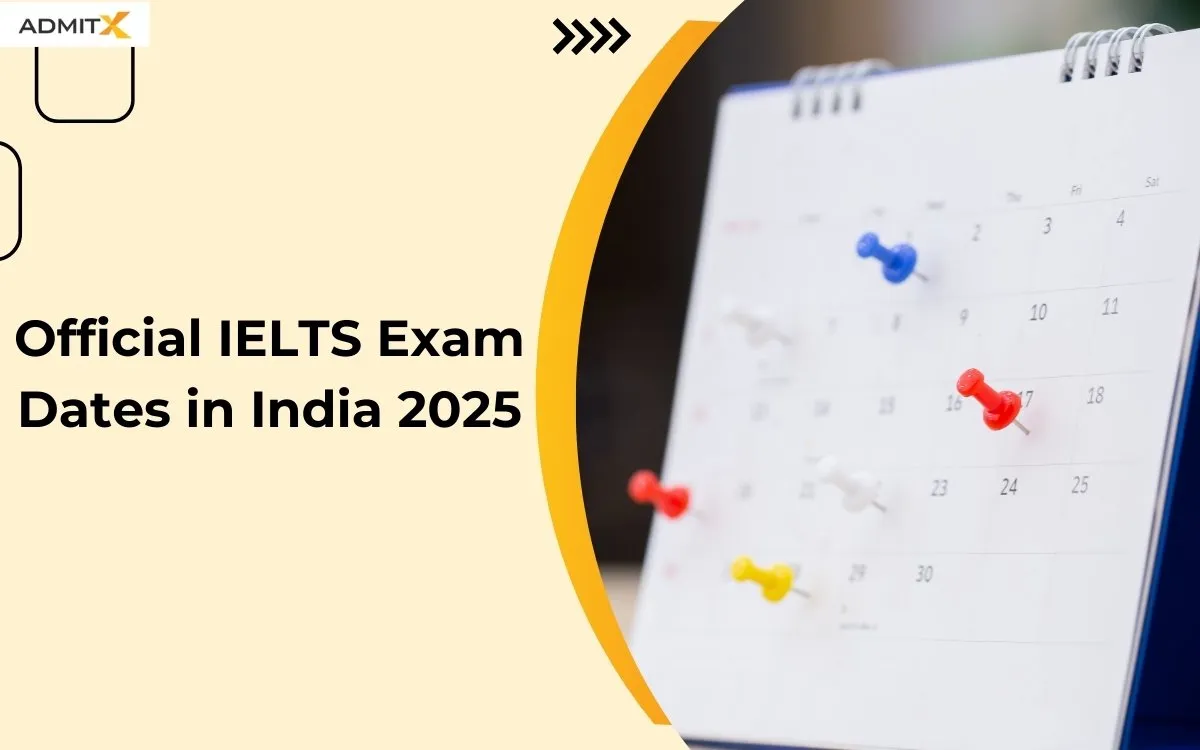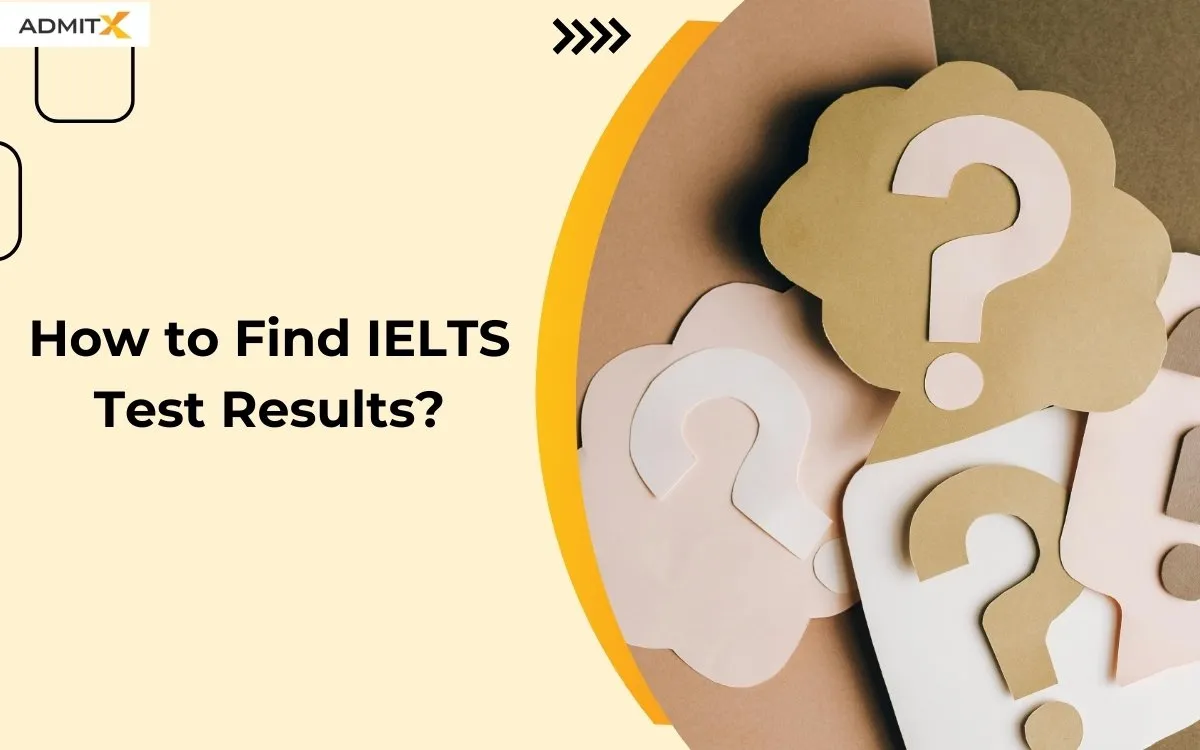
How to Prepare for the IELTS Exam At Home?
Many Indian students find preparing for the IELTS exam independently at home to be a cost-effective and successful approach. You can effectively master all four sections of the IELTS test: Listening, Reading, Writing, and Speaking with a well-structured study plan, a thorough grasp of the exam format, and consistent effort will also confidently prepare for the IELTS exam at home.
- Comparison of Studying Online and Self Study
- Pros and Cons of Preparing for IELTS Online
- Pros and Cons of Preparing for IELTS Through Self-Study
- How to Prepare for the IELTS Exam at Home?
- IELTS Bootcamp by AdmitX
- IELTS Listening Section: How to Do Well?
- IELTS Reading Section: How to Do Well?
- IELTS Writing: How to Do Well?
- IELTS Speaking Test: How to Do Well?
- FAQs
Comparison of Studying Online and Self Study
| Feature | Self-Study | Online Course |
|---|---|---|
| Structure & Flexibility | High flexibility; learners set their own pace and schedule. | Structured learning with scheduled sessions and deadlines. |
| Guidance & Support | Learners must navigate their own path without direct guidance. | Instruction and guidance provided by experts; often includes mentoring. |
| Peer Interaction | Limited to none; primarily solitary learning. | Opportunities for peer interaction and collaboration through online forums or group projects. |
| Accountability | Relies heavily on self-motivation and discipline. | External deadlines and a structured environment can provide accountability. |
| Resources | Requires independent research and curation of study materials. | Access to curated, often exclusive, resources and materials. |
Pros and Cons of Preparing for IELTS Online
The following are some of the pros and cons of preparing for IELTS online.
Pros of Preparing for IELTS Online
- It provides modules of structured learning
- Instructions and guidance are offered by experienced teachers.
- Opportunities for peer interaction and collaboration through forums.
- Access to exclusive study materials
Cons of Preparing for IELTS Online
- Some aspirants might get distracted by social media and notifications.
- They might also feel lethargic due to increased screen time.
Pros and Cons of Preparing for IELTS Through Self-Study
The following are some of the pros and cons of preparing for the IELTS through self-study.
Pros of Preparing for IELTS Through Self-Study
- It provides a flexible learning environment.
- It also provides several experiences about how to navigate forward in preparation without any guidance.
- Opportunities for self-paced learning.
Cons of Preparing for IELTS Through Self-Study
- Requires independent research
- Relies heavily on discipline
- Requires self-made consistency to maintain the schedule
How to Prepare for the IELTS Exam at Home?
Effective IELTS preparation begins with a thorough understanding of the exam’s structure. This foundation should be complemented by a curated list of high-quality study materials and resources.
Essential Resources:
- Official IELTS Website: Explore the website for detailed information on the exam format, registration, and access to sample questions.
- IELTS Bootcamp By AdmitX: AdmitX’s IELTS Bootcamp provides a focused 14-hour program with 67 concise video lessons, 17 assignments, 7 quizzes, and 13 interactive activities to master all modules. 5 full-length mock tests and a supportive community help you prepare effectively and achieve your target score.
- The Official Cambridge Guide to IELTS: This comprehensive guide serves as the cornerstone of your preparation, providing valuable insights and strategies.
- Cambridge IELTS Books 1-16: These books contain authentic IELTS questions, offering invaluable practice for all sections of the exam.
Key Guidelines and Tips:
With these resources in hand, you can effectively prepare for the IELTS exam independently while understanding section-specific strategies: The IELTS test comprises four distinct sections:
- Listening
- Reading
- Writing
- Speaking
IELTS Bootcamp by AdmitX
AdmitX offers free online IELTS classes every week, covering all four sections of the exam: Reading, Writing, Listening, and Speaking. These classes provide valuable insights from experienced trainers, allowing students to directly ask questions and clarify any doubts.
To further enhance learning, AdmitX provides online quizzes after each section and offers full-length practice tests to help students assess their progress and identify areas for improvement. Join these free classes and take a significant step towards achieving your desired IELTS score.
IELTS Listening Section: How to Do Well?
The Listening section of the IELTS exam might seem easier than the others, but it still requires a lot of practice. You’ll listen to four different recordings and have to answer 40 questions in just 30 minutes. The hardest part is that you have to listen and write the answers at the same time.
- Practice a lot: Take as many practice tests as you can. This will help you get used to the format and improve your listening skills.
- Pay close attention: Focus on what you’re hearing. Even a few seconds of distraction can cause you to miss important information.
- Listen carefully: Remember that you’ll only hear each recording once. Concentrate and try not to get distracted.
- Get used to different accents: Listen to podcasts, watch British TV shows, and try to understand people from different English-speaking countries. This will help you understand a wider range of accents.
IELTS Reading Section: How to Do Well?
The IELTS Reading section presents three passages with 40 questions, all to be answered within an hour. While practice is crucial, effective time management is the key to success in this section.
- Timed Practice: Simulate real exam conditions by timing your practice tests.
- Gradual Difficulty: Section 3 typically presents the most challenging questions. Be mindful of this increasing difficulty and allocate your time accordingly.
- Vocabulary Building: A strong vocabulary is essential. Familiarize yourself with unfamiliar words to enhance reading speed and comprehension.
- Question-First Approach: Before reading each passage, quickly scan the questions to identify key terms. This will guide your reading and help you locate relevant information.
- Paragraph Summarisation: As you read, actively summarize each paragraph in your mind to grasp the main ideas.
- Cultivate a Reading Habit: Consistent reading is paramount. Explore different genres of books and articles to improve your overall reading fluency and comprehension. Reading publications like The Economist can help you familiarise yourself with formal writing styles.
IELTS Writing: How to Do Well?
The IELTS Writing section consists of two distinct tasks. While Task 2 is common to both Academic and General Training modules, Task 1 varies significantly. In Academic, you’ll analyze visual data (graphs, charts, diagrams, or processes) and present a concise summary. In General Training, you’ll write a letter (informal, semi-formal, or formal).
Task 2 requires you to compose an essay on a given topic.
- Word Count: Adhere to the minimum word count: 150 words for Task 1 and 250 words for Task 2. Falling short will result in a penalty.
- Planning is Crucial: Before you begin writing, mentally outline your composition and plan the structure of your essay.
- Structure and Flow: Ensure your writing is well-structured with a clear flow of ideas and a logical connection between paragraphs.
- Direct Answers: Address the prompt directly and provide relevant information.
- Supporting Evidence: Use examples and evidence to support your viewpoints in Task 2 essays.
- Effective Paragraphing: Divide your writing into 3-5 concise paragraphs to enhance readability.
- Compelling Introduction and Conclusion: Begin with an engaging introduction and conclude with a meaningful summary. Both should directly address the essay prompt.
IELTS Speaking Test: How to Do Well?
The IELTS Speaking test, conducted separately from the other sections, assesses your English communication skills in a face-to-face interaction with an examiner. This typically lasts 11-14 minutes and comprises three parts: introduction, individual long turn, and a two-way discussion.
- Project Confidence: Approach the test with confidence and composure.
- Clear and Concise Language: Use well-structured sentences and avoid repetition.
- Practice Regularly: Engage in regular conversation with friends or family, discussing a variety of topics and seeking constructive feedback.
- Focus on Accuracy: Prioritise clear and grammatically correct sentences over complex vocabulary.
- Natural Fluency: Speak naturally and avoid forced or unnatural speech patterns.
- Coherent Communication: Ensure your speech flows smoothly and logically.
- Avoid Memorisation: Avoid rote memorization of phrases or vocabulary. Speak authentically and respond appropriately to the examiner’s questions.
- Focus on Overall English Proficiency: Remember that the IELTS Speaking test assesses your overall English proficiency, not just your vocabulary.
Recommended Reads:
FAQs
What are the key steps for self-studying for IELTS?
Self-study requires a structured approach. Understand the test format, gather quality resources, create a study plan, practice consistently, and master time management.
How can I improve my English reading skills for IELTS?
Read widely, practice skimming and scanning, build vocabulary, and analyze practice passages.
How can I improve my English writing skills for IELTS?
Practice writing regularly, analyze sample essays, focus on vocabulary and grammar, and seek feedback.
How can I improve my English speaking skills for IELTS?
Practice speaking regularly, record and analyze your speech, use English in daily life, and practice speaking aloud.
What are some valuable resources for self-studying IELTS?
Utilize the official IELTS website, British Council website, Cambridge University Press materials, and online platforms like YouTube and Coursera.







